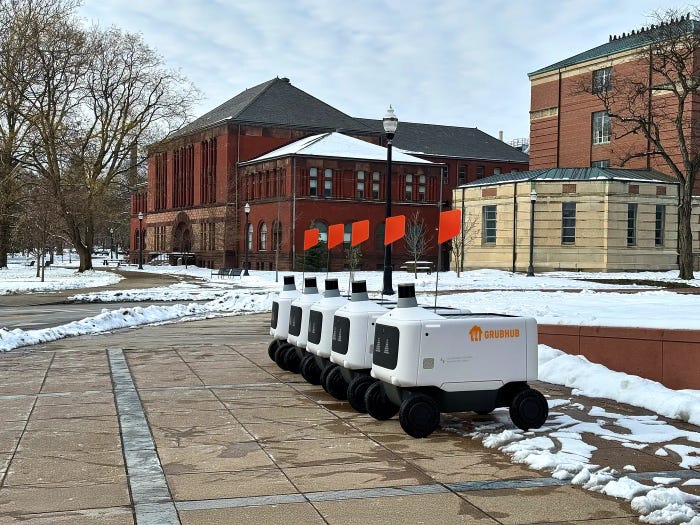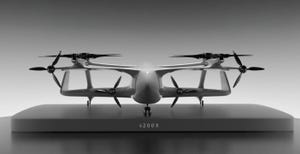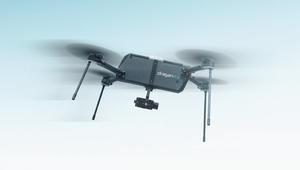Waymo-Uber Judge Torn Over Strong Evidence Minus Smoking GunWaymo-Uber Judge Torn Over Strong Evidence Minus Smoking Gun
The judge presiding over Waymo’s trade-secrets fight with Uber Technologies Inc. said it seems “overwhelmingly clear” the engineer at the center of the case took confidential files but there’s no “smoking gun” proof the ride-hailing company illegally used the information.
May 4, 2017

U.S. District Judge William Alsup told lawyers Wednesday he’s torn over what to do in a “hypothetical situation where there’s this threat of use” of Alphabet Inc.’s proprietary information, “but it’s not yet proven.”
The judge’s comments cast doubt on whether he’ll grant Waymo’s request to freeze Uber’s efforts to develop a fully autonomous car until a jury issues a verdict in the case. Waymo has made a strong case that engineer Anthony Levandowski downloaded 14,000 files before he left the company to form a startup that he later sold to Uber, but “there’s not much proof” Uber used the allegedly purloined information in its research and development, Alsup said during a hearing in San Francisco.
Waymo argued that Uber has incorporated information Levandowski took into its designs and a preliminary injunction is the only way to prevent further damage. Uber says it didn’t steal Waymo’s trade secrets, and its technology is unique and developed without significant input from Levandowski.
‘Radioactive’ Levandowski
Alsup said Uber may have known Levandowski was “radioactive” and took “affirmative steps” to insulate itself from trouble over the material he had downloaded at Waymo. It’s also possible there was a surreptitious scheme to use the files in Uber’s designs, he said.
“You have one of the strongest records I’ve seen in a long time of someone doing something bad, so good for you,” Alsup told Waymo’s lawyers. “You could bust the case wide open and prove that happened, but that has not happened yet.”
Waymo presented new evidence that it says shows Levandowski and Uber were in cahoots while he was still employed by the Alphabet unit — internal Uber emails detailing negotiations with the engineer over the launch of a new driverless technology company and an Uber stock award to him dated the day after he left Waymo in January 2016.
Charles Verhoeven, a lawyer for Waymo, argued that the timing of the award, which he valued at more than $250 million, shows Levandowski was “secretly working for Uber.”
An Uber spokesman said the stock grant was actually issued in August and that the payment dating back to January represents compensation for Levandowski for his time at his own startup, Otto. Uber also said that the vesting of the shares is tied to Levandowski meeting technical milestones over time and that to date, none of his shares are vested.
Miles Ehrlich, a lawyer representing Levandowski, who isn’t a defendant in the case, didn’t immediately respond to a request for comment on the hearing.
Mere Threat
The judge said he has to decide whether to impose immediate restrictions on Uber’s development of its self-driving program based on the mere “threat” that the company has easy access to the Waymo files Levandowski allegedly stole. Whether he issues an order or refuses to, the two sides will continue to gather evidence to prepare for an October trial.
Waymo urged the judge to conclude there’s enough circumstantial evidence to support an injunction. Waymo contends Uber and Levandowski are withholding damning information through the engineer’s assertion of his constitutional right against self-incrimination.
Uber countered that under the law, Waymo must offer hard proof that Uber has illegally used or is about to use genuine trade secrets, and that its rival has fallen well short of that mark.
At one point the judge challenged Uber’s lawyer to deny that Levandowski downloaded the thousands of files.
“We don’t have any basis for dispute,” attorney Arturo Gonzalez responded. But he also said Waymo can’t prove the files ever reached Uber’s computers. “There is no evidence anybody at Uber knew anything about the 14,000 files before this lawsuit was filed.”
Alsup pressed on, asking what would prevent someone at Uber from consulting files on Levandowski’s personal laptop and drawing from that information to guide the development of self-driving technology.
“Nothing prevented that from happening,” but there’s no proof it did, Gonzalez said.
The case is Waymo LLC v. Uber Technologies Inc., 17-cv-00939, U.S. District Court, Northern District of California (San Francisco).
About the Author
You May Also Like
.jpg?width=700&auto=webp&quality=80&disable=upscale)
.jpg?width=700&auto=webp&quality=80&disable=upscale)

.jpg?width=300&auto=webp&quality=80&disable=upscale)


